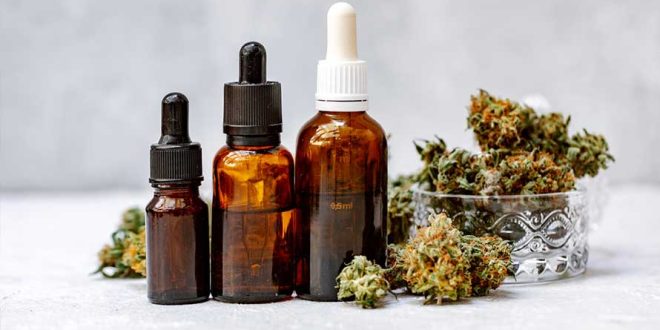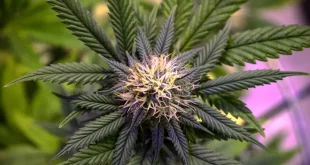As Adult-Use Marijuana proceeds with its state sanctioning and reception across the Northeast, it’s very hard to not perceive the evident disparities that inconvenience the historical backdrop of marijuana arrests and the racially charged past of pot legitimateness, per the ACLU Black people are multiple times as liable to be imprisoned for cannabis-related accusations and convictions compared to rates being essentially higher for dark people over white people in all U.S. states.
The disparities inside marijuana go on after the sanctioning of marijuana inside a U.S region, Leafly’s Job Report distributed in 2021 revealed under 2% of cannabis organizations have dark proprietorship in the present authorized weed markets. In an industry that highly esteems social justice, and civil rights and starts from grassroots activism meaning to address illegitimate imprisonment, the ongoing variety of marijuana possession doesn’t mirror the qualities which the marijuana sector utilizes to distinguish itself.
The execution and backing for Social Equity Programs inside the legalized marijuana industry plan to appropriately help people straightforwardly affected by the imbalances related to the historical backdrop of marijuana denial as well as the authorized pot market. North of 13 states with legitimate adult use of marijuana has likewise tended to social value through the execution of some type of help, underneath zeroing in explicitly on the New York Tri-State region which has a long history related to unbalanced marijuana capture.
New York
New York legitimized adult-use marijuana in 2021 with the entry of the Marijuana Regulation and Taxation Act (MRTA). A piece of the MRTA is a strong social and monetary value program with an intention to make needs and assets for individuals from networks that have been excessively influenced by marijuana denial and has laid out an objective that half of all adult-use marijuana license new york be granted to social and financial value candidates.
Also, the State Dormitory Authority is looking for recommendations from financial backers and configuration firms who try to help qualified social and monetary value members in their business advancement. The Dormitory Authority intends to have a $200 million asset to create and carry out this program as well as appropriately help licensees with their various operational and start-up requirements.
New York’s endeavors to make a state-supported asset to help businesses with their start-up costs show a positive pattern towards making a fair and legal cannabis industry in the Tri-state area. Underneath frames a portion of the boundaries for qualifying as a social and financial value candidate in New York.
- Individuals from networks are excessively influenced by the implementation of marijuana preclusion.
- The Cannabis Control Board will give rules to decide the qualification of this necessity.
- Communities lopsidedly influenced incorporate a background marked by captures, convictions, or other policing inside a particular geographic region mirroring a divergent requirement of marijuana disallowance when contrasted with the remainder of the state.
- Minority-Owned Businesses
- At least 51% proprietorship by at least one minority group member.
- Minority group part is a U.S. resident or long-lasting occupant outsider who is and can show participation in one of the accompanying gatherings.
- Black people have starting points in any of the Black African racial gatherings.
- Hispanic people of Mexican, Puerto Rican, Dominican, Cuban, Central or South American of one or the other Indian or Hispanic beginning, with race not being considered.
- Native American or Alaskan local people who had beginnings in any of the first people groups of North America.
- Asian and Pacific Islander people have starting points in any of the far east nations, Southeast Asia, the Indian subcontinent, or the Pacific Islands.
- Minority proprietorship should be genuine, significant, and proceeding.
- Minority proprietorship should have and practice control of the business.
- Must be a private (small) company
- Women-Owned Businesses
- Minority and Women-Owned organizations
- A firm claimed by a minority group part who is likewise a lady.
- Distressed Farmers
- Service-Disabled Veterans
Connecticut
Connecticut has structured its licensing system by designating multiple pathways to licensure for most license types which include, social equity lottery, general lottery, and non-lottery applications. The social equity lottery process offers diminished permitting expenses to qualified candidates to help with the pathway to licensure. happen before the overall lottery which will take into consideration fruitless lottery candidates to reapply during the overall lottery.
Non-Lottery Applications (with a social equity part)
- Cultivators situated in a Disproportionately Impacted Area (DIA) as characterized by Section 149 of Public Acti 21-1.
- Social Equity Partners
○ Is a business element something like 65% claimed and constrained by an individual(s) who:
■ Had a typical pay of under 300% of the state middle family pay throughout recent years.
■ Was an inhabitant of a DIA for no less than 5 of the beyond 10 years
■ Was an occupant of a DIA for something like 9 years before the age of 18
Equity Joint Ventures
○ A business substance collaborating with an authorized clinical cannabis maker or dispensary that is something like half claimed and constrained by an individual or people that:
■ Had a typical pay of under 300% of the state middle family pay throughout recent years.
■ Was an inhabitant of a DIA for no less than 5 of the beyond 10 years
■ Was an inhabitant of a DIA for no less than 9 years before the age of 18
While endeavors made by states to focus on licenses being granted to social equity-based organizations can make a more impartial marijuana industry. The capacity for these candidates to get financing for their organizations is intensely deficient. Because of the government’s wrongdoing of marijuana getting credits for marijuana organizations from monetary or bureaucratic foundations is unimaginable, in mature business sectors like California this has driven social value candidates and minority-possessed organizations to go to private financial backers. The absence of monetary assets for these projects considers savage loaning towards minority claimed marijuana organizations.
New Jersey
New Jersey began accepting marijuana permit applications for their adult-up use marijuana program in late 2021. As a feature of the legitimization cycle, the Cannabis Regulatory Commission (CRC) made the Office of Diversity and Inclusion layout practices and systems for advancing the consideration of different populations in the legitimate marijuana industry. Presently, the program has a particular way for “Priority Applicants.” This application process was made fully intent on setting out open doors for individuals from assigned designated networks, individuals with earlier marijuana convictions, minorities, ladies, and debilitated veterans, and is broken into three distinct business types.
- Diversely Owned Businesses: Minority-claimed, lady-possessed, or impaired veteran-possessed, and guaranteed thusly.
- Social Equity Businesses: Claimed by people who have lived in a financially Disadvantaged Area of the state, or who have marijuana-related convictions.
- Impact Zone Businesses: The business is either situated in an Impact Zone, claimed by occupants of an Impact Zone, or utilizing inhabitants of an Impact Zone.
 Posting Point
Posting Point

